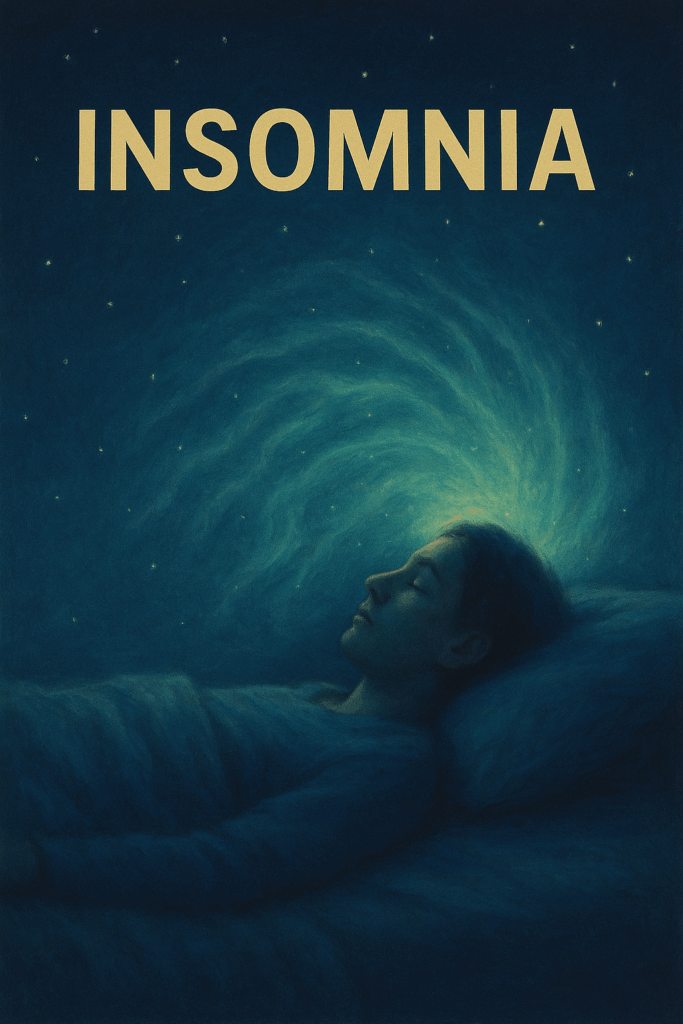Insomnia: The Body’s Call for Rest and Restoration
Sleep is not merely the absence of wakefulness; it is the body’s natural healing cycle, the period in which cellular repair, detoxification, and emotional integration occur. When sleep becomes disturbed or elusive, the condition known as insomnia, it signals that the body and mind are unable to enter this restorative phase. From a Natural Hygiene perspective, insomnia is not a disease to be treated but a message from the body that internal balance and energy flow have been disrupted.
At its core, insomnia reflects nervous exhaustion. The nervous system—responsible for coordinating all bodily functions—relies on adequate rest, hydration, and nutrition to maintain equilibrium. When overstimulated by emotional strain, stimulants, late eating, or excessive sensory input, the nerves remain active even when the body longs for rest. This overactivity prevents the transition into the parasympathetic “rest and repair” mode, leaving the person tired yet wired.
A common contributor to insomnia is chronic toxicity. The body is constantly striving to cleanse itself, especially during the night when energy can be redirected from activity to purification. However, if the bloodstream is loaded with waste from processed foods, caffeine, alcohol, or stress-related hormones, the body’s attempt to detoxify may become uncomfortable. This discomfort can manifest as restlessness, mental agitation, or a racing heart—all of which keep sleep at bay. Cleansing the body through fasting or a simple raw-fruit diet can often bring about profound improvements in sleep quality, as the burden on the nervous and digestive systems is lightened.
Another important factor is emotional tension. Unresolved fears, guilt, or worry often replay in the mind during quiet hours. When one lies still, distractions disappear and the subconscious projects these unresolved emotions onto the inner screen. In such cases, insomnia becomes an invitation to face and release the internal conflicts that have been suppressed during the day. Emotional release practices, journaling, or quiet reflection before bed can help to discharge this mental energy, allowing peace to return.
Late eating is another common disruptor. Digestion is a dynamic process requiring significant energy and nervous activity. When food remains undigested at bedtime, the body cannot fully shift into rest. Instead, it must divert resources to the digestive organs. This conflict of function—trying to digest and rest simultaneously—creates internal tension and leads to disturbed or shallow sleep. To restore natural rhythms, evening meals should be light, simple, and taken at least three hours before bedtime.
Artificial stimulation through caffeine, alcohol, or even late-night screen use further compounds the issue. Caffeine and nicotine keep the nervous system alert, while alcohol, though initially sedating, disrupts deep sleep cycles later in the night. Exposure to blue light from devices suppresses melatonin, the hormone that signals the body to sleep. Restoring natural light rhythms—rising with the sun and dimming lights at dusk—helps the body re-establish its internal clock.
Beyond external habits, the deeper healing comes from rebuilding vitality. The body heals and restores itself best when living in harmony with natural laws: fresh air, sunlight, pure water, clean food, emotional balance, and meaningful purpose. Regular daily exercise helps discharge nervous energy and promotes relaxation. Breathing deeply oxygenates the body, while meditation and gratitude calm the mind. These are not temporary fixes but lifelong practices that allow the body to self-regulate naturally.
When a person experiences chronic insomnia, it is wise to look at it not as a curse but as a teacher. It reveals where life has moved away from its natural order—whether through emotional unrest, stimulants, toxins, or mental overactivity. Rest returns not by forcing sleep but by restoring balance. The body then, relieved of its burdens, naturally drifts into the deep rest it has been craving all along.
Suggested Internal Links

